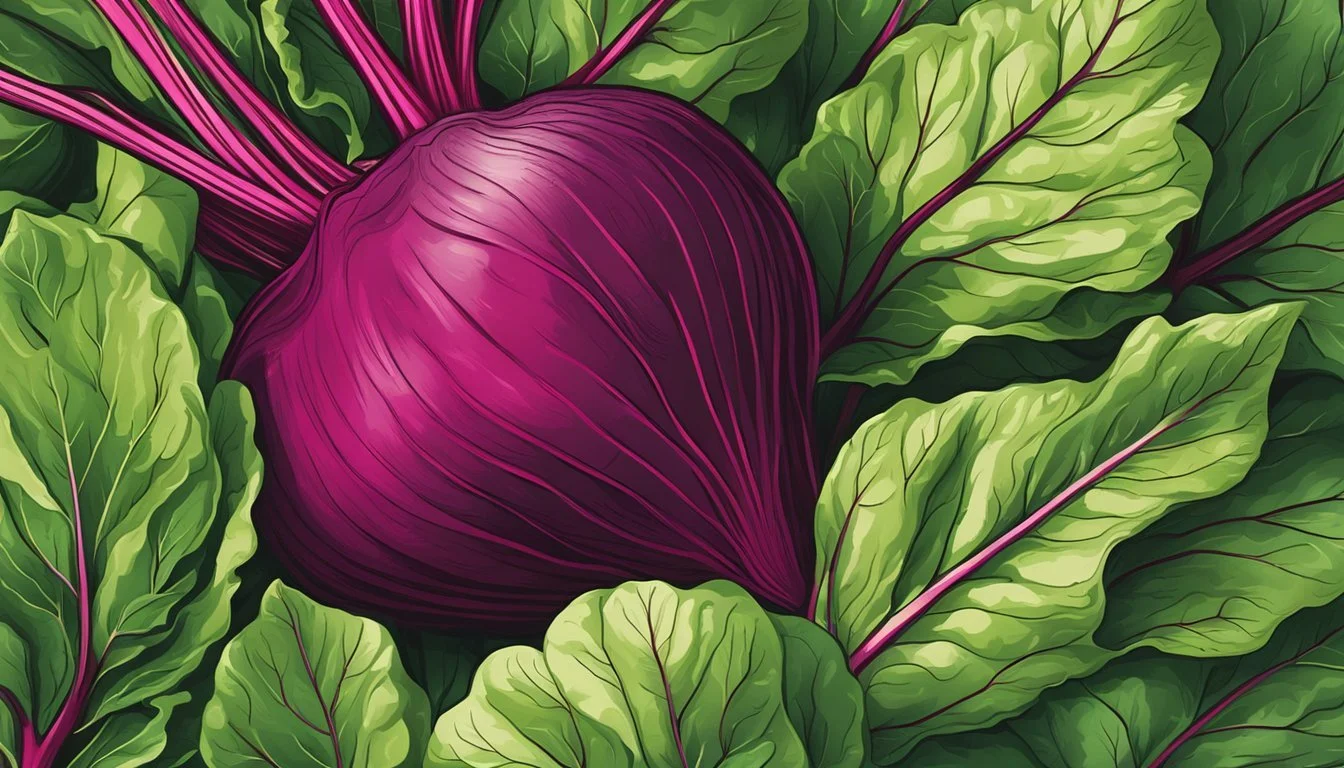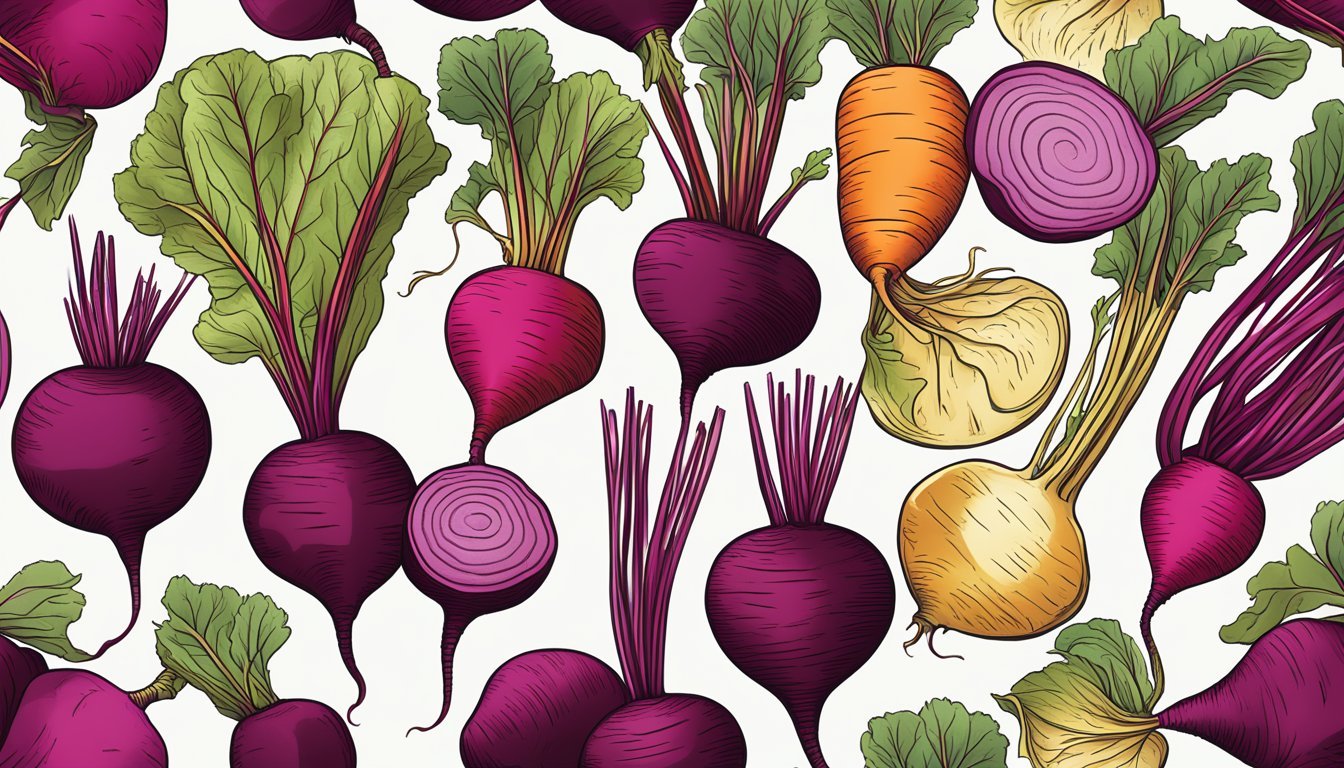What Are the Health Benefits of Beets?
Exploring Nutritional Advantages
Beets, known scientifically as Beta vulgaris, are a root vegetable recognized for their deep red color and sweet earthy flavor. Beyond their culinary versatility, beets possess a wealth of health benefits due to their nutrient-rich profile. They are a significant source of vitamins, minerals, and antioxidants that contribute positively to overall health. For example, beets are an excellent source of fiber, which supports digestive health, and they contain compounds that may promote heart health.
Beetroots are especially noted for their ability to help lower blood pressure, a factor that can significantly reduce the risk of heart disease. This vegetable is high in naturally occurring nitrates, which the body converts into nitric oxide, a molecule that helps relax and dilate blood vessels, thereby improving blood flow. Additionally, the pigments that give beets their characteristic color, known as betalains, possess anti-inflammatory properties that may contribute to the reduction of chronic inflammation in the body.
Regular consumption of beets might also contribute to improved mental and physical performance. Studies suggest that the nitrates in beets can enhance the efficiency of mitochondria, the powerhouses of the cell, which could lead to better stamina and endurance. The vegetable's nutrient make-up, including Vitamin C, folate, and essential minerals like potassium and manganese, reinforces its status as a beneficial addition to a balanced diet.
Nutritional Profile of Beets
Beets are nutritionally dense, providing a wide array of essential vitamins, minerals, and beneficial plant compounds. They contribute to overall health with their low-calorie content yet high nutrient density.
Key Vitamins and Minerals
Vitamin C: Important for immune function and skin health.
Iron: Essential for the formation of hemoglobin and transporting oxygen in the blood.
Potassium: Vital for muscle function and nerve signaling.
Manganese: Plays a role in bone development and nutrient metabolism.
Folate (Vitamin B9): Necessary for DNA synthesis and cell growth.
A half-cup serving of cooked beets generally contains:
Calories: 37
Protein: About 1 gram
Fat: 0 grams
Carbohydrates: 8 grams
Beets are particularly notable for their folate content, offering a substantial percentage of the Recommended Dietary Allowance (RDA).
Dietary Fiber Content
Beets provide dietary fiber, which promotes digestive health, aids in maintaining blood sugar levels, and helps to lower blood cholesterol. One cup of beetroot includes approximately 3.8 grams of fiber, contributing to feelings of fullness and supporting a healthy gut.
Fiber composition per cup:
Total Fiber: Just under 4 grams
Presence of Plant Compounds
Beets are rich in a variety of phytonutrients, giving them their vibrant color and health-promoting properties. These compounds include:
Betaine: An amino acid associated with heart health.
Betalains: Including betacyanins and betaxanthins, which have antioxidant and anti-inflammatory properties.
Beta-carotene: A precursor of vitamin A, good for eye health.
Lutein and Zeaxanthin: Specifically beneficial for eye health.
These plant compounds are not only antioxidants but may also support in detoxification processes and contribute to overall health maintenance.
Health Benefits
Beets offer a multitude of health benefits due to their rich content of nutrients, including vitamins, minerals, and plant compounds. These attributes contribute notably to the improvement of cardiovascular health, reduction of inflammation and oxidative stress, enhancement of digestive well-being, support of athletic performance, and potential cancer prevention and management strategies.
Cardiovascular Health
Beets are an excellent source of nitrates, which the body converts to nitric oxide—a compound that relaxes and dilates blood vessels. This process can lead to lower blood pressure and improved blood flow, subsequently reducing the risk of heart disease and stroke.
Reduced Inflammation and Oxidative Stress
Due to their high levels of antioxidants, particularly betalains, beets can mitigate oxidative stress and have anti-inflammatory properties. These effects may help in the management of chronic diseases and further protect cognitive function.
Improved Digestive Health
Rich in dietary fiber, beets support the digestive system by promoting regular bowel movements and contributing to the health of the gut. Adequate fiber intake is also associated with a lowered risk of digestive diseases, such as colon cancer.
Support for Athletic Performance
The nitrates in beets have been linked to enhanced athletic performance. They are believed to improve the efficiency of mitochondria, which are responsible for producing energy in cells, and may lead to better oxygen use during physical activity.
Cancer Prevention and Management
While no single food can prevent cancer, the compounds in beets, like the antioxidants and anti-inflammatory molecules, may play a role in reducing the risk of certain types of cancer. Research has highlighted the potential of these compounds in inhibiting cancer cell growth.
Dietary Considerations and Potential Risks
Beets are a nutrient-dense food with many health benefits, but individuals with certain health conditions should consume them with caution due to their composition. High levels of oxalates in beets might pose a risk for kidney stone formation and exacerbate conditions such as gout.
Impact on Kidney Stones and Gout
Beets contain oxalates, natural compounds that can crystallize and contribute to the formation of kidney stones. Individuals with a history of oxalate-containing kidney stones may need to moderate their intake of beets to prevent recurrence. Moreover, because oxalates can affect calcium absorption, excessive consumption of beets might not be recommended for those with osteoporosis.
People with gout, a type of arthritis caused by uric acid buildup, might also be affected by foods rich in oxalates. Although not high in purines — substances that can exacerbate gout — the oxalates in beets may still warrant attention for these individuals.
Beeturia and Other Concerns
Beeturia is a harmless condition where one's urine may become pink or red after consuming beets, a phenomenon that occurs in roughly 10-14% of the population. While beeturia is typically benign and no cause for concern,
Incorporating Beets into Your Diet
Incorporating beets into one's diet reaps numerous health benefits, thanks to their rich nutrient profile. They can be prepared in a variety of ways to suit any meal.
Cooking and Preparation
Beets can be prepared using several methods; each retains its distinct flavor and nutritional value.
Raw: Grated beets add a crunchy texture to salads.
Juiced: Beet juice offers a concentrated source of nutrients.
Roasted: Roasting caramelizes their natural sugars, enhancing the sweet taste.
Steamed: This method preserves nutrients and natural flavors.
Pickled: Pickling beets is a method to preserve them and can add a tangy taste.
Beets can be peeled before cooking, though it's not essential. Washing and scrubbing are generally sufficient to prepare them for cooking.
Beet-Infused Recipes
Integrating beets into recipes ensures meals are nutritionally robust and flavorful.
Salads: Dice cooked beets or shred them raw to add to any green salad.
Smoothies: Blend beet juice with other fruits for a nutritious drink.
Sides: Serve sliced steamed beets as a healthful side dish.
Mains: Incorporate diced beets into soups or stews.
Snacks: Enjoy beet chips baked with a sprinkle of sea salt.
By creatively using beets in various dishes, one can easily enhance their daily diet with this versatile vegetable.
Frequently Asked Questions
This section aims to address common inquiries regarding the numerous health benefits of beets, exploring their impact on wellness, gender-specific advantages, potential negative effects, contributions to skin health, and any risks tied to their regular consumption.
How does beet juice support overall wellness?
Beet juice is lauded for its high content of vitamins, minerals, and antioxidants. Regular consumption can support cardiovascular health by improving blood flow and lowering blood pressure.
What are the specific advantages of beetroot for female health?
For females, beetroot offers significant iron content, which is beneficial in preventing anemia, especially during menstruation. Its high folate levels are also crucial for a healthy pregnancy.
In what ways can men benefit from consuming beetroot?
Men may experience an increase in stamina and muscle strength from the nitrate content in beetroot, improving exercise performance and recovery.
Can beetroot consumption have negative effects on certain individuals?
Certain individuals may experience issues like kidney stones from excessive consumption of beets due to their oxalate content. People with beet allergies should also avoid them.
How does beetroot contribute to skin health?
Beets contain compounds that can promote skin health by fighting inflammation and providing essential nutrients that enhance skin texture and appearance.
Are there any risks associated with consuming beets regularly?
Regular consumption of beets should be moderated since their high oxalate content can contribute to kidney stone formation in susceptible individuals. Additionally, beetroot's natural pigments could lead to temporary changes in urine and stool color.



